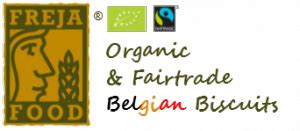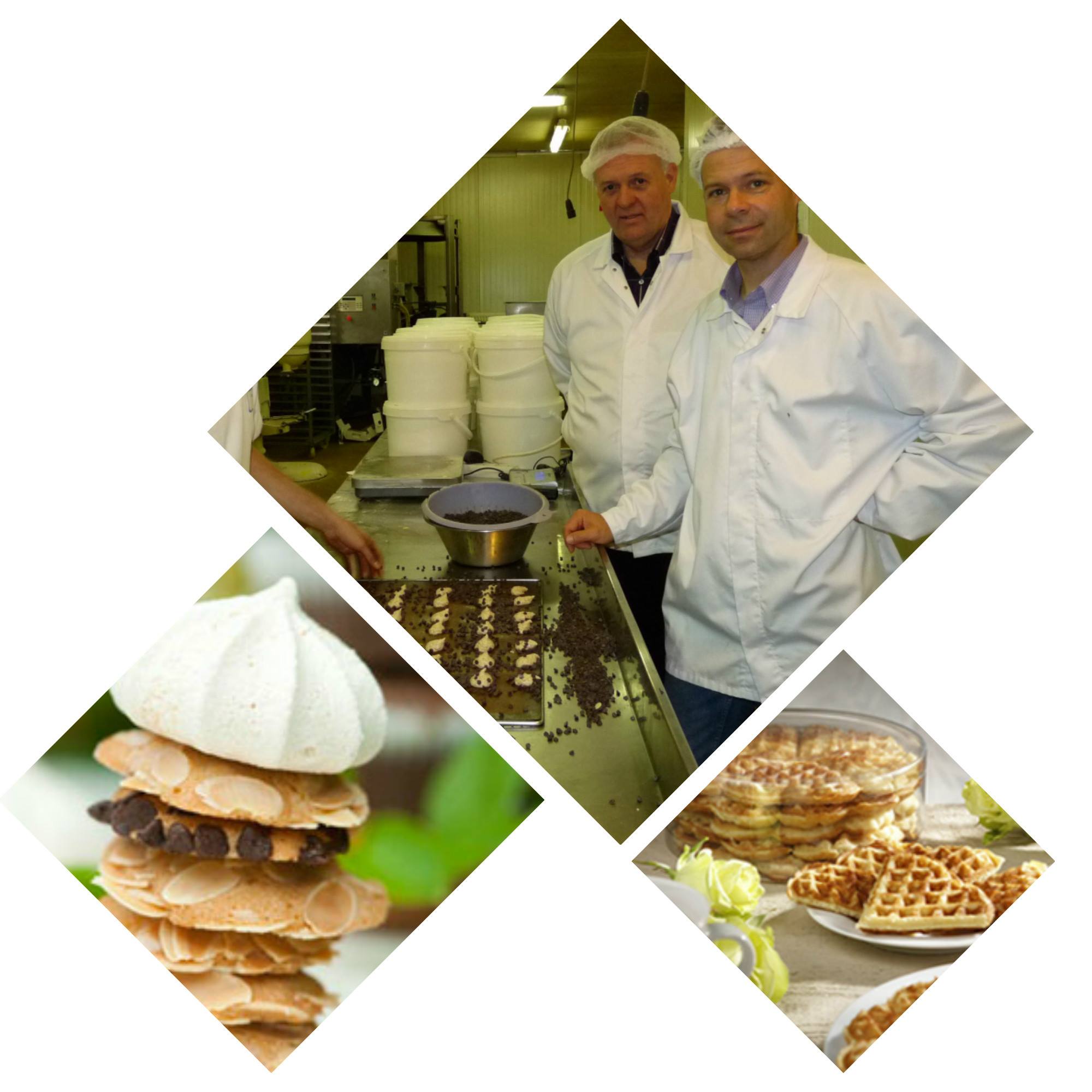Freja Food was established in 2000. Now, the company produces more than 20 kinds of biscuits and sells them in more than 300 Belgian wholefood stores. With its traditional cookies, wafers and cakes, Freja Food brings together ingredients from farmers from the North and farmers from the South.
 After his studies in applied economics, Roland Dejaeghere worked in the bakery ingredients exports business for twelve years. He spent a lot of time abroad, mainly in southern Europe. Roland recalls: “After the 1999 Dioxin Affair I started questioning our food system and how sustainable it is”.
After his studies in applied economics, Roland Dejaeghere worked in the bakery ingredients exports business for twelve years. He spent a lot of time abroad, mainly in southern Europe. Roland recalls: “After the 1999 Dioxin Affair I started questioning our food system and how sustainable it is”.

He had a couple of crucial meetings with pioneers of Belgium’s organic sector and with an associate, Marc Boerboom, decided to launch an organic product. “We both had a background in the bakery business. Marc was the son of a baker and I had been a bakery ingredients salesman. Together, we decided to launch some cookies.” Roland was inspired by the Norse goddess of fertility, Freja, and named the new company after her.
“We started with a limited range of cookies, wafers and cakes.” Freja Food resolutely opted for organic ingredients and a traditional production method. “In the beginning we only made wheat-based products, but gradually we started testing other cereals such as spelt, quinoa, oats and hemp. We met people who inspired us and pushed us towards innovation.”
No extra cost for the consumer
With the help of the not-for-profit organisation Vredeseilanden ten years ago, Freja Food switched to fair trade ingredients where possible. Almost all Freja Food products under the Be Bene and MONDOh brand names are Fairtrade labelled. “Taste is very important to us, so the search for the right ingredients took some time. Now, we use sugar from Paraguay and India and cocoa from Ghana and Peru.”


Freja Food decided not to charge anything extra to the consumer for its fair trade products. “The extra cost for fair trade ingredients is not that big, so we did not want it to have an impact. Fair trade should not be part of a marketing strategy or a reason to charge a customer more.”
For Roland, choosing fair trade ingredients is an ethical and philosophical matter. “If you choose sustainability, to me, it means you’re developing an economically sustainable activity while respecting the environment and you don’t exploit developing countries.”
Simply tasty

Freja Food’s baseline is ‘Simply tasty’. “It refers to our traditional, simple and tasty recipes. A consumer should be able to understand what is in the cookies by looking at the wrapper. We never use more than eight ingredients.” Almost all cookies are produced in a traditional, manual way. “We could do things differently, but we don’t want to.”
“For instance, to obtain the texture and taste of home-made cookies, you have to work with small quantities of dough which has an impact on our prices. Up to about 15 kilograms of dough you don’t need to add emulsifiers to obtain a nice airy product. Even though adding these ingredients is allowed in the organic sector, we prefer not to do so.”
Many other cookie producers use moulds that set the form of their cookies. We, at Freja Food, drop the dough on a baking plate. “It gives a very different texture,” says Roland. “The cookies almost melt in your mouth. But it also means the form of the cookies may vary slightly. In addition, we hand-drop the almonds and chocolate chips which means some cookies may have a few less. But that does not bother me, or our customers. On the contrary, it is far more pleasing, I believe.”
Bringing the North and South together
In 2007, Freja Food stood at the cradle of a new brand, MONDOh, which won the BeFair award that same year. The BeFair award is awarded by BTC, the Belgian development agency, to the best fair and sustainable trade initiatives. MONDOh brings together fair trade products from the South with smallholder farm products from the North. “The MONDOh charter commits us to import fair trade products and to use local ingredients from within 150 kilometres of our company. For instance, we use spelt flour from Luxembourg, butter from Recogne and eggs from Tessenderlo. Our hemp for the hemp cookies is also Belgian.”
“In the MONDOh charter we commit ourselves that the imported products are fair trade and that we purchase the local raw materials within a radius of 150 kilometres of our company. Specifically, these include spelt flour from the north of Luxembourg, butter from Recogne and eggs from Tessenderlo. The hemp in the hemp biscuits is also Belgian”.
“Even though Freja Food does a great job with the MONDOh range, things can still be improved,” claims Roland, “and that is why we keep on looking for ways to become even more sustainable. To package our cookies we now use recyclable polyethylene instead of PVC. But you can also use packaging made from corn starch, which is biodegradable. Right now we are researching whether we can switch to this.” Freja Food also supports Cunina, a not-for-profit that promotes education for disadvantaged children in the South.
Innovation
Because of its innovative nature and the use of organic ingredients, the Be Bene product range was awarded the 2009 Organic award by BioForum during Bioweek. It awards companies that have made a special effort to promote the organic label or for innovation in the organic sector. Freja Food regularly tries out new recipes, for instance with ingredients such as quinoa, hemp or cassava. “Every day we come across people who are trying to innovate, which inspires us.”
But not every attempt at innovation is a success. “We tried sugar-free cookies, but we found out that we needed sugar in our production process to obtain a tasty product with an acceptable storage life. We could not just replace sugar with something else. The quinoa cookies on the other hand were very tasty and we could put them on the market. Unfortunately, they did not sell well.”

Roland likes his hemp cookies best. “They are very crunchy, and I like that. I also like the oat cookies very much. Oats is the only cereal used in these cookies. Most other oat cookies on the market have relatively few oats in them.”
“People’s minds are changing. When I started fifteen years ago, people were suspicious about our concept,” recalls Roland. “Today, I have the impression that everybody understands what organic or fair trade stands for. Not everybody buys it, but people are familiar with the concept now and more and more people are finding it a valuable alternative to conventional food.”
Does this show in your turnover? “We feel that the whole organic sector is growing, but I do not believe Freja Food is growing faster than other players in the sector. Of course we are pleased with our growth, but we do not have to become big. We want to check the pace of our growth. We want to stick to traditional ways of producing and use high-quality ingredients. On the other hand, our food system should change faster. Something should be done to make our food healthier.” Roland does not lack motivation though. “I love doing this. It makes entrepreneurship meaningful to me.”


